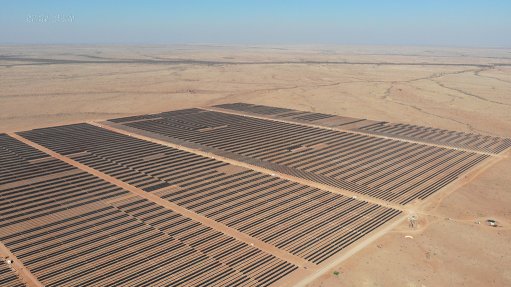Down with State security! Long live national security!
Why does South Africa have a Ministry of State Security? (The official South African government website refers to it as a Ministry, although it is also officially referred to as a department.) Let me make the question clearer: why does South Africa have a Ministry/Department of STATE Security? As far as I am aware, no other democracy has, or ever had, an agency or entity devoted to STATE security.
In a democracy, the State is an agency of the nation, an outgrowth of the people, the structure that executes the will of the people, as expressed through elections to create governments that direct the structures that are collectively known as the State. Democracies have national security, not State security. In a democracy, there can be no threat to the nation that is not automatically also a threat to the State, and no threat to the State that is not immediately and automatically a threat to the nation.
But the term ‘State Security’ has totally different connotations. It implies a concept of threats to the State that are quite separate from threats to the nation. And, if you separate the concepts of threats to the nation and threats to the State, you can end up with a mindset that sees threats to the State coming from the nation. Or, if you prefer, institutionalised paranoia.
State security is a concept that is found in dictatorships, not democracies. I think it is safe to say that everyone has heard of the dreaded East German secret police, the Stasi. And where did the term ‘Stasi’ come from? It was an acronym of Staats Sicherheit: State Security. And its full title? Yes, you’ve guessed it: Ministerium für Staatsicherheit – the Ministry of State Security. The People’s Republic of China, not exactly the most democratic country in Asia (although, to be fair, these days far from being the continent’s most oppressive State either) also has a Ministry of State Security.
What makes it even stranger is that there is also an entirely negative local use of the term. In the days of apartheid, the South African government – which really was estranged from the majority of the country’s people – had a Bureau of State Security (inevitably acronymed in English to BOSS), set up in 1969. In 1980, BOSS was replaced by a new agency, the National Intelligence Service.
It is true that Nigeria has a State Security Service (SSS), but, since independence, Nigeria has rarely had democratic governments, and the SSS was set up under a military government, so this is probably just a case of bureaucratic inertia. (Nigeria’s external intelligence and counterintelligence agency is called the National Intelligence Agency.)
So, democratic South Africa revived apartheid and East German terminologies when it set up its Ministry/Department of State Security and the subordinate State Security Agency (officially abbreviated to SSA). Why?
This is not just a matter of semantics (although the semantics are important: they imply a split between the State and the nation). There is a very real danger that, over time, the title ‘State Security’ will create a mindset, among the agency personnel, that their function is to protect the State, not the nation. Now, it is true that the official ‘vision’ and ‘mission’ statements of the SSA refer to “national security”, not State security, but, psychologically, I think it is safe to suggest that the titles of the Ministry/Department and the SSA will have a much more profound impact on the minds of their staff than the vision and mission statements.
Another point: intelligence agencies, because of the information they gather, analyse and hold, are potentially very powerful institutions, indeed. In consequence, most democracies (and, indeed, many dictatorships) divide the different types of civilian intelligence activities among separate agencies, reporting to different Ministries/Departments.
Perhaps the most familiar example is provided by the UK: domestic intelligence, counterespionage and counterterrorism are vested in the Security Service (always referred to, for short, by its First World War cover name of MI5); international espionage is the responsibility of the Secret Intelligence Service (officially abbreviated to SIS but almost always called, from its Second World War cover name, MI6); and signals interception, codebreaking and cybersecurity, and all related activities are vested in Government Communications Headquarters (GCHQ). MI5 reports to the Home Secretary (Interior Minister), but is not part of the Home Office (Interior Ministry). MI6 reports to the Foreign Secretary and the Cabinet-level National Security Council. GCHQ also reports to the Foreign Secretary.
Likewise, France has the domestic General Directorate for Internal Security (abbreviated to DGSI in French), sub- ordinate to the Ministry of the Interior; and the external General Directorate for External Security, or DGSE, which, oddly (as it is a civil agency) falls under the Ministry of Defence (France, like the UK, has a separate defence/military intelligence agency). And Germany has the domestic (and wonderfully and aptly named) Federal Office for the Protection of the Constitution (abbreviated to BfV in German), which reports to the Federal Ministry of the Interior; and the external Federal Intelligence Service, or BND, which reports to the Chancellor’s (Prime Minister’s) office.
But the SSA is South Africa’s only civilian intelligence agency, covering both domestic and external operations. This maximises its potential power. And only one Minister is responsible for its activities. This creates a constitutional/political “single point of failure” situation. A President only has to appoint a single loyalist to the post of Minister of State Security and he has control over the country’s entire civilian intelligence system. This is a very unhealthy situation, which is why most democracies with dedicated intelligence agencies carefully avoid it. Is it coin- cidence that, more than once over the past 20 years, dodgy ‘intelligence’ reports have played such a prominent role in political infighting in South Africa? The country needs to reform its civilian intelligence system to bring it into line with general democratic practices.
Comments
Announcements
What's On
Subscribe to improve your user experience...
Option 1 (equivalent of R125 a month):
Receive a weekly copy of Creamer Media's Engineering News & Mining Weekly magazine
(print copy for those in South Africa and e-magazine for those outside of South Africa)
Receive daily email newsletters
Access to full search results
Access archive of magazine back copies
Access to Projects in Progress
Access to ONE Research Report of your choice in PDF format
Option 2 (equivalent of R375 a month):
All benefits from Option 1
PLUS
Access to Creamer Media's Research Channel Africa for ALL Research Reports, in PDF format, on various industrial and mining sectors
including Electricity; Water; Energy Transition; Hydrogen; Roads, Rail and Ports; Coal; Gold; Platinum; Battery Metals; etc.
Already a subscriber?
Forgotten your password?
Receive weekly copy of Creamer Media's Engineering News & Mining Weekly magazine (print copy for those in South Africa and e-magazine for those outside of South Africa)
➕
Recieve daily email newsletters
➕
Access to full search results
➕
Access archive of magazine back copies
➕
Access to Projects in Progress
➕
Access to ONE Research Report of your choice in PDF format
RESEARCH CHANNEL AFRICA
R4500 (equivalent of R375 a month)
SUBSCRIBEAll benefits from Option 1
➕
Access to Creamer Media's Research Channel Africa for ALL Research Reports on various industrial and mining sectors, in PDF format, including on:
Electricity
➕
Water
➕
Energy Transition
➕
Hydrogen
➕
Roads, Rail and Ports
➕
Coal
➕
Gold
➕
Platinum
➕
Battery Metals
➕
etc.
Receive all benefits from Option 1 or Option 2 delivered to numerous people at your company
➕
Multiple User names and Passwords for simultaneous log-ins
➕
Intranet integration access to all in your organisation


















